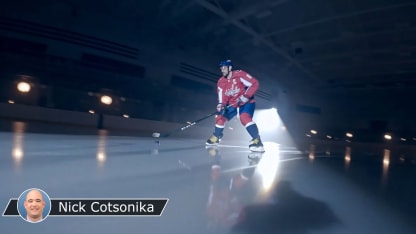The vast majority of NHL players are too young to remember when the League was last on ESPN, but they know how the network reports news, shows highlights and broadcasts events in other sports, and they know the audience and impact it can have.
"One of the things that is remarkable -- this goes back to when we initially left ESPN -- is the acceptance of ESPN among our players," NHL Deputy Commissioner Bill Daly said. "Our players understand the importance of that engine. They grew up with it. They know it. They watch it in locker rooms."
That should help with projects like "The Point," an hour-long show to be hosted by Buccigross at 3 p.m. ET on Thursdays on ESPN2 during the regular season and perhaps daily on ESPN during the Stanley Cup Playoffs. One of the goals of the program is to tell human-interest stories that show another side of the players.
"They will open up probably more because they know the power of the brand, and they want to grow the game with us," Buccigross said. "Their success is our success and vice versa. I hope just the four letters will bring out a different side of them and get pumped to be a part of it."
Turner has its own brand with its own power.
"I think Turner's going to have an entirely different style of covering our game than perhaps ESPN, so I'm excited to see that," Daly said.
That doesn't necessarily mean Turner will look at what the competition is doing and go in a different direction, said Drew Watkins, senior vice president and creative director for Turner Sports and Bleacher Report Studios.
What it means is this:
"We lean a little bit more into the entertainment of it, the culture of it," Watkins said. "We love the X's and O's and the stats, and there's a time and place for that. But where we really excel, particularly in our studio coverage, is embracing the fun, embracing the humor, embracing the moments that make people who are casual fans want to tune in to just kind of see what's going on. We'll kind of be doing that across the board."
The drone is just an example of what Turner might try from a technological standpoint. And remember: This is just the start.
"I mean, we just came off of instituting the base camera for baseball during the last postseason," Watkins said. "We were really excited about that. It took years to get that from the page out onto the playing field.
"And we've been thinking that same way around hockey. What can we do to take the view to a new place, to give them a new perspective and not overshadow the game, not to be bigger than the game, but just to enhance the experience? That's what we want to do. We want to enhance the experience.
"So even if you don't see all of our innovations opening night or a couple weeks in, just know that we're working on it. That's all we're thinking about, is, 'How can we enhance the game and how can we make the game more fun for fans?'"

